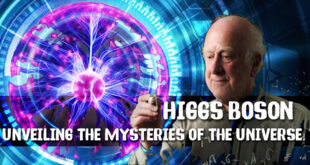In simulations, robots move around by exploring, observing and drawing from previous experiences
As robots may struggle with navigational concepts, a team of researchers from the Massachusetts Institute of Technology (MIT) have devised a new way to help them navigate environments more as humans do. The novel motion-planning model lets robots determine how to reach a goal by exploring the environment, observing other agents, and exploiting what they’ve learned before in similar situations. “Just like when playing chess, these decisions branch out until (the robots) find a good way to navigate. But unlike chess players, (the robots) explore what the future looks like without learning much about their environment and other agents,” said co-author Andrei Barbu from the University. The team developed a model that combines a planning algorithm with a neural network that learns to recognise paths that could lead to the best outcome and uses that knowledge to guide the robot’s movement in an environment.
Avoiding collisions
In an experiment, the researchers trained and tested the model in navigating environments with multiple moving agents, which is a useful test for autonomous cars, especially navigating intersections and roundabouts. In the simulation, several agents are circling an obstacle. A robot agent must successfully navigate around the other agents, avoid collisions, and reach a goal location, such as an exit on a roundabout. The findings, presented at IEEE/RSJ International Conference on Intelligent Robots and Systems (IROS), indicated that the model can capture enough information about the future behaviour of the other agents (cars) to cut off the process early, while still making good decisions in navigation. This makes planning more efficient. Moreover, they only needed to train the model on a few examples of roundabouts with only a few cars. “The plans the robots make take into account what the other cars are going to do, as any human would,” Mr. Barbu said. This work might one day let cars learn how humans behave and how to adapt to drivers in different environments, according to the researchers.
Source : https://www.thehindu.com/todays-paper/tp-life/robots-may-steer-more-like-humans/article25152182.ece
Check Also
Higgs Boson – The God Particle of Quantum Physics
Concept : About Higgs Boson The Higgs boson imparts mass to elementary particles like …
 Chinmaya IAS Academy – Current Affairs Chinmaya IAS Academy – Current Affairs
Chinmaya IAS Academy – Current Affairs Chinmaya IAS Academy – Current Affairs



